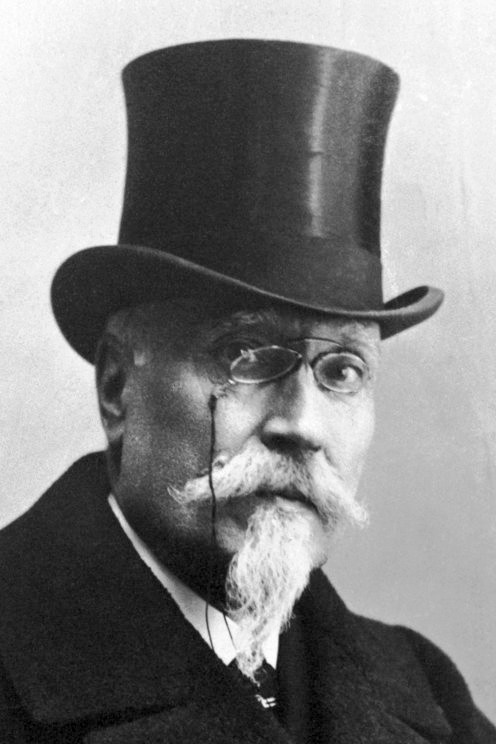José de Echegaray
| José Echegaray y Eizaguirre | |
|---|---|
 |
|
| Born |
19 April 1832 Madrid, Spain |
| Died | 14 September 1916 (aged 84) Madrid, Spain |
| Occupation | Dramatist, civil engineer and mathematician |
| Nationality | Spanish |
| Genre | drama |
| Notable awards |
Nobel Prize in Literature 1904 |
José Echegaray y Eizaguirre (19 April 1832 – 4 September 1916) was a Spanish civil engineer, mathematician, , and one of the leading Spanish dramatists of the last quarter of the 19th century. He was awarded the 1904 Nobel Prize for Literature "in recognition of the numerous and brilliant compositions which, in an individual and original manner, have revived the great traditions of the Spanish drama".
He was born in Madrid on April 19, 1832. His father, a doctor and institute professor, was from Aragon and his mother was from Navarra. He spent his childhood in Murcia, where he finished his elementary school education. It was there, at the Murcia Institute, where he first gained his love for math.
In order to earn enough money for the Engineering School of Channels and Ports, he moved at the age of fourteen to Madrid, where he enrolled at the newly created Second Teaching Institute of San Isidro. At the age of twenty, he left the Madrid School with a Civil Engineering degree, which he had obtained with the first of his promotion, and he had to move to Almeria and Granada to begin working at his first job.
In his childhood he read Goethe, Homer, and Balzac, readings that alternated with those of mathematicians like Gauss, Legendre, and Lagrange.
José Echegaray maintained constant activity until his death on 14 September 1916 in Madrid. His extensive work did not stop growing in his old age: in the final stage of his life he wrote 25 or 30 mathematical physics volumes. At the age of 83 he commented:
I cannot die, because if I am going to write my mathematical physics encyclopedia, I need at least 25 more years.
In 1854 he began teaching a class at the Engineering Paths School, working as a secretary there also. He taught mathematics, stereotomy, hydraulics, descriptive geometry, and differential and physical calculus from that year until 1868. From 1858 to 1860 he was also a professor at the Assistants’ School of Public Works.
José de Echegaray was born into a family of scholars. His father was a professor of Greek. Echegaray attended engineering school besides a degree in economics.
Echegaray also entered politics in later life. He enjoyed an illustrious career in the government sector, being appointed Minister of Public Works and Finance Minister successively.
Along with the Provençal poet Frédéric Mistral, he was awarded the Nobel Prize for Literature in 1904, after having been nominated that year by a member of the Royal Spanish Academy, making him the first Spaniard to win the prize. His most famous play is El gran Galeoto, a drama written in the grand nineteenth century manner of melodrama. It is about the poisonous effect that unfounded gossip has on a middle-aged man's happiness. Echegaray filled it with elaborate stage instructions that illuminate what we would now consider a hammy style of acting popular in the 19th century. Paramount Pictures filmed it as a silent with the title changed to The World and His Wife. His most remarkable plays are Saint or Madman? (O locura o santidad, 1877); Mariana (1892); El estigma (1895); The Calum (La duda, 1898); and El loco Dios (God, the fool, 1900).
...
Wikipedia
